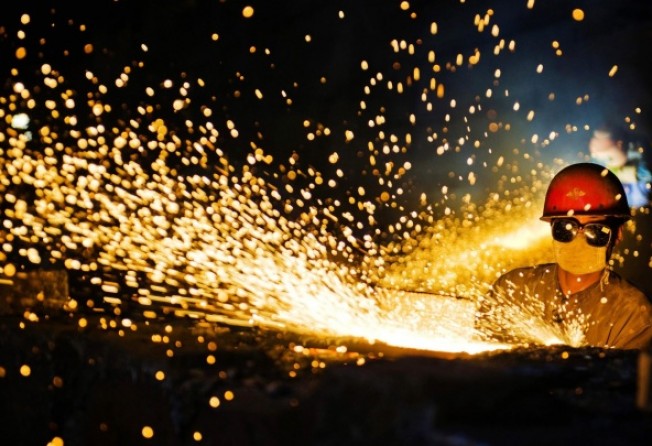Dull China data prompts talk of relief measures
With growth in fixed-asset investment of 20.6pc missing forecasts, and other data failing to inspire, analysts revive talk of policy responses

Investment in China unexpectedly cooled last month while industrial output and consumption barely picked up, indicating the economy still lacks a strong momentum to rebound.
Analysts called for more deregulation and structural reforms but were split over the need for a policy easing, such as an interest-rate cut, as property investment remained strong.
Fixed-asset investment climbed 20.6 per cent in January-April from a year earlier, data from the National Bureau of Statistics showed yesterday. The rise was slower than the 20.9 per cent growth in the first quarter and below the market consensus of 21 per cent. Property investment, however, rose 21.1 per cent year on year in April, accelerating from March's 20.2 per cent.
Industrial production gained 9.3 per cent, faster than the 8.9 per cent growth in March, possibly reflecting two extra working days in April this year.
"Overall, the data pointed to slightly better economic growth [in the second quarter], but is still far from encouraging. And the diverging trend between real-activity growth and credit growth remains a worrying mystery," Societe Generale China economist Yao Wei said.
Total social financing, comprising bank lending and credit through non-banking channels, such as trust loans, jumped to 7.91 trillion yuan (HK$9.88 trillion) in the first four months, 63 per cent more than for the same period last year.
"It seems a large portion of the new credit has gone to debt serving or to sustaining inefficient projects," Yao said.
Though retail sales growth picked up slightly, to 12.8 per cent in April from March's 12.6 per cent year-on-year growth, the data was distorted by frenzied shopping for gold products after the metal's price dropped significantly last month. Gold and jewellery sales soared 72.2 per cent in April from a year earlier.
The Hang Seng Index fell 1.4 per cent to 22.989.81 points, while the Shanghai Composite Index dropped 0.2 per cent to 2,241.92 on the lacklustre data.
Haitong International Securities chief economist Hu Yifan said interest rates needed to be lowered to encourage borrowing. "While fast credit expansion has boosted short-term liquidity, some ongoing infrastructure projects need more long-term funding support," Hu said.
Australia and New Zealand Banking analysts saw an "increasing likelihood" for a quarter of a percentage point interest rate cut to boost domestic demand and curb capital inflows. But monetary policy alone would have limited impact, they said.
China should accelerate structural reforms to sustain economic growth, such as reducing tax burdens on the services sector, liberalising interest rates, and deepening capital market developments, the ANZ analysts said.
Nomura International's Zhang Zhiwei said the latest data wasn't "bad enough to trigger a policy easing".
Bank of America Merrill Lynch economists said in a research report that policymakers would "likely resist introducing stimulus measures unless growth slides much further".